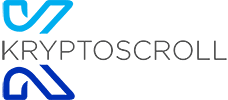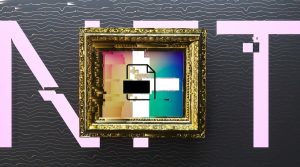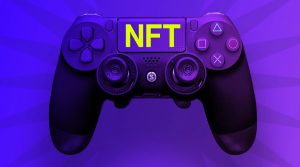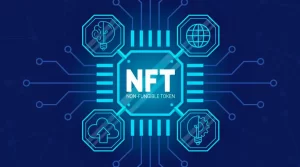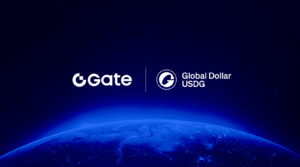The Impact of NFT Interoperability on Decentralized Governance Models

The Impact of NFT Interoperability on Decentralized Governance Models
Introduction
Non-Fungible Tokens (NFTs) have not only transformed the way we perceive ownership but also introduced new possibilities for decentralized governance models. As NFT interoperability becomes increasingly prevalent, it has a profound impact on the way decentralized governance operates within the NFT ecosystem. In this article, we will explore the significance of NFT interoperability and its impact on decentralized governance models, revolutionizing the way decisions are made, resources are allocated, and communities are empowered.
Understanding NFT Interoperability
Defining NFT Interoperability
NFT interoperability refers to the ability of NFTs to operate seamlessly across different platforms, blockchain networks, and marketplaces. It enables NFTs to be transferred, traded, and utilized without restrictions, regardless of the underlying technology or infrastructure. Interoperability enhances liquidity, expands market access, and fosters collaboration within the NFT space.
Breaking Down Silos in Decentralized Governance
The decentralized governance of NFTs often operates within platform-specific silos. Each platform or community has its own governance model, decision-making processes, and allocation mechanisms. However, NFT interoperability breaks down these silos by enabling NFTs to transcend platform boundaries, interact with other NFTs, and participate in governance processes beyond their native ecosystems.
The Role of Interoperability Protocols
Interoperability protocols and standards play a crucial role in enabling decentralized governance across different NFT ecosystems. These protocols act as a common language that allows NFTs and governance systems to communicate and interact with each other. Examples of interoperability protocols include Polkadot, Cosmos, and Ethereum’s ERC-721 and ERC-1155 standards. By embracing these protocols, NFT projects and communities can collaborate, exchange ideas, and pool resources, fostering a more connected and inclusive decentralized governance landscape.
Impact on Decentralized Governance Models
Increased Participation and Engagement
NFT interoperability promotes increased participation and engagement within decentralized governance models. Through interoperable NFTs, individuals can extend their involvement beyond a single community or platform. This fosters a sense of ownership, belonging, and responsibility, as participants have the opportunity to contribute to multiple governance processes aligned with their interests and values.
Resource Sharing and Collaboration
NFT interoperability enables resource sharing and collaboration among decentralized governance communities. Through the interoperability of NFTs, projects and communities can share assets, expertise, and ideas, strengthening collective decision-making and resource allocation. Collaborative efforts among decentralized governance models amplify the impact of initiatives, facilitate innovation, and drive progress within the NFT ecosystem.
Diversified Decision-Making
NFT interoperability allows for diversified decision-making across different decentralized governance models. Participants can have a voice and influence decisions beyond their primary NFT ecosystem. This cross-pollination of ideas and perspectives enriches governance discussions, reduces the risk of centralization, and fosters a more inclusive and democratic decision-making process.
Enhanced Liquidity and Value
Interoperable NFTs contribute to enhanced liquidity and value within decentralized governance models. As NFTs can be freely transferred and utilized across different platforms, they become more liquid and accessible to a larger audience. This liquidity increases the potential value of NFTs, making them more attractive for participants and investors within decentralized governance communities.
Decentralized Governance Challenges in NFT Interoperability
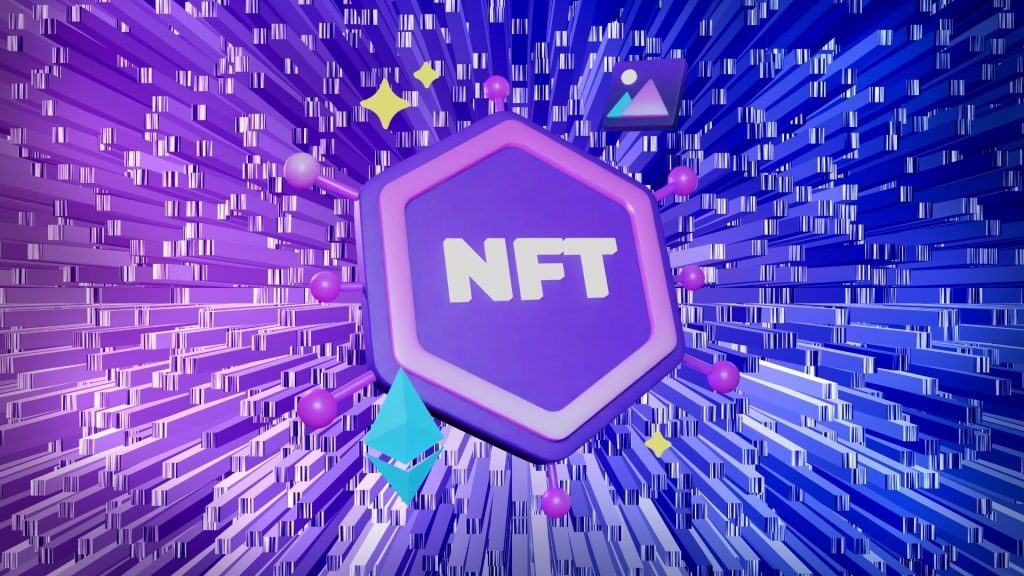
While NFT interoperability brings numerous benefits, it also presents challenges to decentralized governance models. Here are some key challenges to consider:
- Standardization and Compatibility: Achieving interoperability requires establishing common standards and protocols across different NFT platforms and blockchain networks. Ensuring compatibility and alignment between governance models, voting mechanisms, and decision-making processes can be a complex task that requires coordination and collaboration.
- Governance Token Integration: Integrating governance tokens across different NFT ecosystems and platforms poses challenges. Ensuring seamless token compatibility, voting rights, and benefits across diverse governance models may require bridging mechanisms or interoperability protocols to align the tokenomics and governance structures.
- Governance Scalability: As NFT interoperability expands, decentralized governance models must address scalability concerns. Ensuring efficient and effective decision-making processes while managing a larger and more diverse community requires robust governance frameworks and scalable infrastructure.
- Trust and Security: With interoperability comes the need for trust and security. Ensuring the integrity of NFTs, protecting against potential vulnerabilities, and maintaining transparency in governance processes are essential for fostering trust among participants and stakeholders.
NFT Interoperability and Cross-Chain Governance
NFT interoperability extends beyond single-chain governance models and paves the way for cross-chain governance. Here’s an exploration of cross-chain governance in the context of NFT interoperability:
- Cross-Chain Collaboration: Cross-chain governance enables collaboration and coordination between different blockchain networks and NFT ecosystems. It allows NFT projects and communities to share resources, ideas, and expertise to drive innovation and collective growth.
- Decentralized Oracles: Decentralized oracles play a crucial role in cross-chain governance by providing trusted and verifiable data between different blockchain networks. Oracles enable the secure exchange of information, allowing NFTs to interact and participate in governance processes across disparate chains.
- Interoperable Governance Tokens: Interoperability of governance tokens enables cross-chain voting and decision-making. Governance tokens can be used to influence decisions not only within a single NFT ecosystem but also across different ecosystems, promoting collaboration, inclusivity, and consensus-building on a broader scale.
- Cross-Chain Proposals and Voting: Cross-chain governance allows for the submission and voting on proposals that impact multiple NFT ecosystems. This enables decentralized decision-making processes that span across different chains, creating opportunities for coordination, resource allocation, and joint initiatives.
The Future of NFT Interoperability and Decentralized Governance
The future of NFT interoperability and decentralized governance holds immense potential for innovation and community empowerment. Here are some potential developments to watch for:
- Interoperability Frameworks: Continued development of interoperability frameworks and protocols will enhance seamless integration and communication between NFT ecosystems. These frameworks will provide standardized tools and infrastructure for decentralized governance models to collaborate effectively.
- Collaborative Governance Initiatives: We can expect to see more collaborative governance initiatives emerging across different NFT ecosystems. Communities will come together to address shared challenges, pool resources, and make collective decisions to drive the growth and development of the NFT ecosystem as a whole.
- Decentralized Governance-as-a-Service: The rise of decentralized governance-as-a-service platforms will provide accessible tools and services for NFT projects to implement and manage decentralized governance models. These platforms will simplify the process of governance setup, voting mechanisms, and decision-making, lowering the entry barriers for projects interested in embracing decentralized governance.
- Integration with Web3 Infrastructure: Interoperable NFTs and decentralized governance models will become increasingly integrated with the broader Web3 infrastructure. This integration will allow for seamless interactions with other decentralized applications, DeFi protocols, and emerging technologies, creating a more interconnected and robust ecosystem.
Transparency and Accountability in Interoperable Governance
Transparency and accountability are crucial components of effective decentralized governance models. Here’s how NFT interoperability contributes to transparency and accountability:
- Open Access to Information: Interoperability allows governance participants to access information and data from different NFT ecosystems. This transparency ensures that relevant information is readily available, empowering participants to make informed decisions and contribute to governance processes effectively.
- Publicly Auditable Processes: Interoperable governance models can be designed to enable public audits of governance processes. Through blockchain technology, the history of governance proposals, voting records, and resource allocation can be transparently recorded and audited by the community, ensuring accountability and preventing manipulation.
- Immutable Governance Records: By leveraging the immutability of blockchain, interoperable governance models can establish a tamper-resistant record of governance activities. This immutability fosters trust among participants, as the integrity and transparency of the governance process are preserved, and historical decisions can be reviewed and evaluated.
- Community-Driven Governance Monitoring: Interoperable governance models empower the community to monitor governance processes. Community members can actively participate in the oversight and verification of governance activities, ensuring that decisions align with the collective goals and interests of the community.
Social Impact of Interoperable Governance in NFTs
Interoperable governance models have the potential to create a significant social impact within the NFT ecosystem. Here are some ways interoperable governance can drive positive change:
- Inclusive Decision-Making: Interoperable governance allows diverse voices and perspectives to be included in decision-making processes. This inclusivity promotes fairness and prevents the concentration of power in the hands of a few, ensuring that governance decisions reflect the interests and values of the broader community.
- Empowering NFT Creators: Interoperable governance provides NFT creators with a platform to have a say in the direction of the ecosystem. Creators can actively participate in governance decisions related to royalties, licensing, and intellectual property rights, giving them more control over their creations and fostering a supportive environment for creators’ rights.
- Community-Driven Impact Projects: Interoperable governance models can facilitate community-driven impact projects. Communities can collectively allocate resources and fund initiatives that address social, environmental, or economic challenges, leveraging the power of NFTs and decentralized governance for positive change.
- Collaborative Ecosystem Growth: Interoperability encourages collaboration and partnership among NFT projects and ecosystems. By working together, projects can combine resources, knowledge, and expertise to tackle shared challenges and drive collective ecosystem growth, fostering a spirit of collaboration and mutual support.
Challenges and Considerations in Interoperable Governance
While interoperable governance models hold great promise, there are challenges to overcome. Here are some considerations for successful implementation:
- Governance Alignment: Aligning governance processes, decision-making mechanisms, and tokenomics across different NFT ecosystems is crucial for effective interoperable governance. Establishing common principles, standards, and protocols can help foster alignment and ensure seamless interoperability.
- Scalability and Performance: As interoperability expands, decentralized governance models must address scalability and performance challenges. Implementing efficient consensus mechanisms, optimizing blockchain networks, and exploring layer-two solutions can help maintain the speed and efficiency of governance processes as the ecosystem grows.
- Legal and Regulatory Compliance: Interoperable governance models must navigate legal and regulatory frameworks across different jurisdictions. Complying with applicable laws, data privacy regulations, and governance requirements while maintaining the decentralized nature of the ecosystem is a complex undertaking that requires careful consideration.
- Community Education and Engagement: Educating and engaging the community is vital for successful interoperable governance. Providing accessible resources, fostering discussions, and incentivizing participation can help ensure that community members understand the importance of governance and actively contribute to decision-making processes.
Conclusion
NFT interoperability has a transformative impact on decentralized governance models within the NFT ecosystem. It promotes increased participation, collaboration, and resource sharing among communities. As NFT projects and ecosystems embrace interoperability and address the associated challenges, decentralized governance will become more inclusive, democratic, and influential. The future of NFT interoperability and decentralized governance holds immense potential for shaping the direction of the NFT ecosystem and empowering communities to collectively drive its growth and development.
